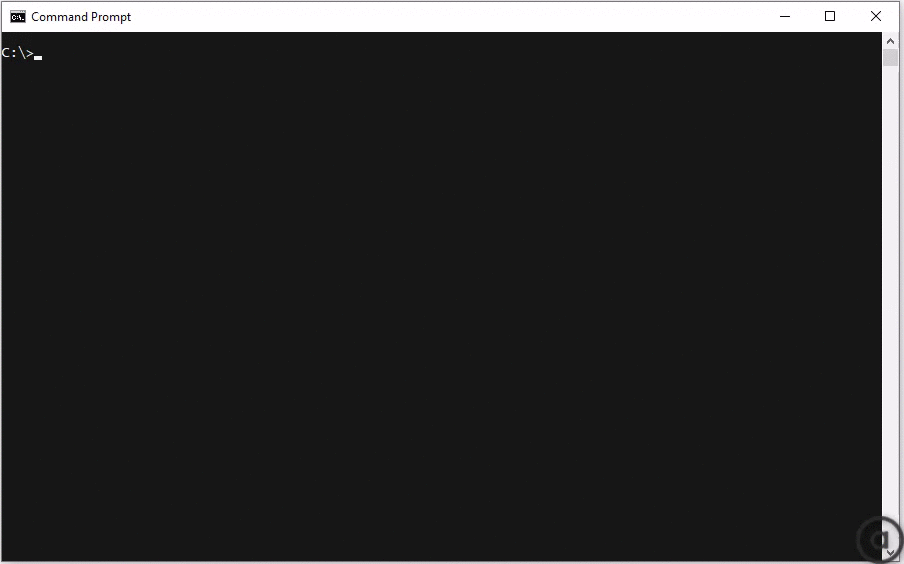Ecosyste.ms: Awesome
An open API service indexing awesome lists of open source software.
https://github.com/marksmurphy/akamai-error-lookup
Retrieves diagnostic details of Akamai error reference numbers via Akamai's API
https://github.com/marksmurphy/akamai-error-lookup
akamai akamai-cli cdn cli diagnostic-tool diagnostics error hashref lookup reference
Last synced: 2 days ago
JSON representation
Retrieves diagnostic details of Akamai error reference numbers via Akamai's API
- Host: GitHub
- URL: https://github.com/marksmurphy/akamai-error-lookup
- Owner: markSmurphy
- Created: 2019-05-17T17:00:01.000Z (over 5 years ago)
- Default Branch: master
- Last Pushed: 2022-07-08T10:11:24.000Z (over 2 years ago)
- Last Synced: 2024-11-24T01:20:01.714Z (28 days ago)
- Topics: akamai, akamai-cli, cdn, cli, diagnostic-tool, diagnostics, error, hashref, lookup, reference
- Language: JavaScript
- Homepage: https://www.npmjs.com/package/akamai-error-lookup
- Size: 467 KB
- Stars: 1
- Watchers: 1
- Forks: 0
- Open Issues: 2
-
Metadata Files:
- Readme: README.md
- Changelog: CHANGELOG.md
Awesome Lists containing this project
README
# akamai-error-lookup


[](https://www.codacy.com/gh/markSmurphy/akamai-error-lookup/dashboard?utm_source=github.com&utm_medium=referral&utm_content=markSmurphy/akamai-error-lookup&utm_campaign=Badge_Grade)

[](https://snyk.io/test/npm/akamai-error-lookup)



## Quick Start
* Install globally using `npm install -g akamai-error-lookup`
* Configure your Akamai API credentials in `auth.edgerc`
* Run `hashref [errorReference]`

## Overview
**A command line utility to lookup Akamai error reference numbers (e.g. `Reference #18.2d351ab8.1557333295.a4e16ab`).**
If you work on a website hosted behind Akamai's CDN you will, on occasion, see an Akamai **Reference #** error number. These occur when Akamai catches an error, as opposed to the origin serving an error, such as a DNS resolution failure or an origin connection error.
In these scenarios Akamai reports an error reference number:

Using `hashref` you can lookup the details of the #Ref error number to diagnose the root cause of the error:
```text
hashref 11.2e373217.1558103133.1dedf6b
```

---
## Installation
```text
npm install -g akamai-error-lookup
```
### Configuration
You'll need to create an `auth.edgerc` file and configure it with your Akamai API credentials as described [here](https://developer.akamai.com/introduction/Conf_Client.html).
You can save `auth.edgerc` in either the current directory or in the home directory (`node -p require('os').homedir()`).
Using the home directory means you can install the package globally and call `hashref` from any location.
If the `auth.edgerc` file is not found you'll receive the following error message:

---
## Usage
`hashref [errorReference] [options]`
---
## Options
```text
--decode Enable or disable decoding of URLs and user-agent [true]
--no-color Switches off colour output
--version Display version number
--help Display this help
```
### decode
By default all output will be decoded, so that fields such as **user-agent** and **URL** are more readable. Use `--decode false` to switch this off.
### no-color
If your terminal has problems rendering the colour output then you can switch it off by using `--no-color`.
### version
Prints out `akamai-error-lookup`'s version number.
### help
Displays the help screen.
---
## Verbose output
The default terminal output contains a selective subset of the more salient fields returned by Akamai's API.
The full `json` response is automatically written to the operating system's default directory for temporary files (`node -p require('os').tmpdir()`). The location is displayed as part of the terminal output:
```text
Writing full response to [C:\Users\foo\AppData\Local\Temp\11.2e373217.1558514903.f6c71e.json]
```
Note: On Linux systems this will be `/tmp` rather than `/var/tmp` which means these files will **not** persist a system reboot. If you want to retain them, copy them elsewhere.
## Debugging
`akamai-error-lookup` uses the npm package [debug](https://www.npmjs.com/package/debug "www.npm js.com"). If you set the environment variable `debug` to `hashref` you'll see full debug output.
### Windows
```text
set debug=hashref
hashref [errorReference]
```
### Linux
```text
DEBUG=hashref hashref [errorReference]
```
### Powershell
```text
$env:debug="hashref"
node akamai-error-lookup [errorReference]
```
---
## Where is the Change Log
The Change Log as been moved to its own file, `CHANGELOG.md`, and can be found [here](./CHANGELOG.md)
---